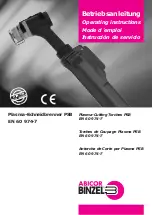
More on connecting and testing the 6730 Vocal Zapper
The 6730 Vocal Zapper can easily connect to the external tape
recorder connectors on a stereo receiver. These are specified as
Tape Out and Tape Monitor in the manual for the kit, but basically
they corresespond to line-level outputs and inputs.
The Tape Out is a signal from the receiver that is the selected
'source' (phono, CD, Radio, Auxillary, etc). This set of connectors
may also be called Tape Record, left and right. When the source is
'played' the line-level signal appears at these jacks and to confirm
this, you could connect these 'line outs' to a separate amp/speakers
to hear the selected source.
Tape Monitor may also be labeled Tape In or Tape Playback. It is
a set of line-level inputs that route to the power amp section when
the Tape Monitor switch is asserted. Recorded material on the
external tape recorder is input back to the receiver via these con-
nectors. Normally, this would be the signal from output of a tape
deck, but with the vocal zapper, it is the zapper's outputs. With
only cables connected to these inputs on the receiver (and Tape
Monitor asserted) you should be able to touch the tip of the cable
and hear a buzz or hum through your speakers indicating the inputs
are 'live'. An external CD player could be played through these
jacks. The Vocal Zapper sends the 'zapped' signal in on these jacks.
A quick and simple way to get an idea of whether the Zapper
circuitry is operating or not is to advance the mic gain trim cw and
touch the tip contact of the MIC Input jack to find out if this
introduces a hum or buzz like touching the cables to the Tape
Monitor jacks does. If not, it might be soldering trouble on the
vocal zapper kit. The first check would be of the soldering and
battery condition.
A VOM or multitester can be set to measure 9V DC and the power
to the ICs tested by putting the black probe to the circuit ground/
common while the red probe is put to pin 8 of the IC. Read the


































